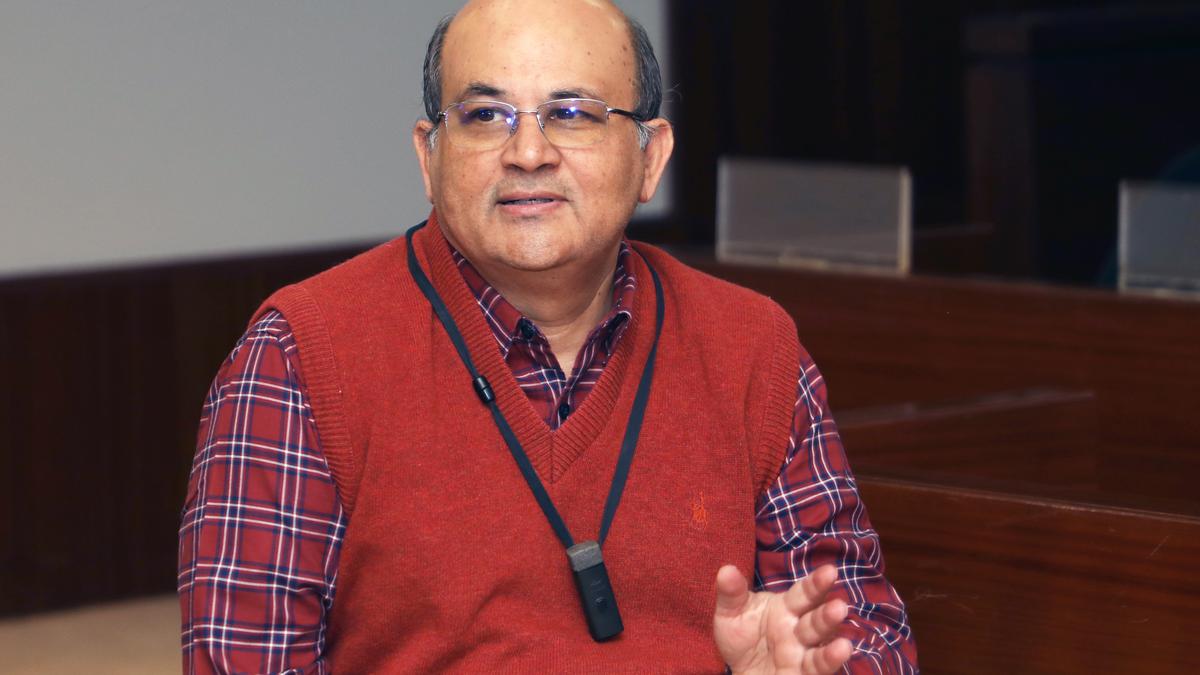IIMB wants to use online education to create more impact in sectors that need better managerial skills
Ahead of the commencement of the golden jubilee year celebrations, IIMB director Rishikesha T. Krishnan speaks on the past, present, and future of the esteemed institution

One of the pioneer institutions of business education in the country, the Indian Institute of Management Bangalore (IIMB) is celebrating its golden jubilee year. Ahead of the commencement of celebrations from March 31, Rishikesha T. Krishnan, director, IIMB, spoke to The Hindu on the evolution of the institution.
Excerpts from the conversation:
How would you trace the evolution of the courses in IIMB over 50 years?
The institute has successfully adapted to the changing economic environment and needs of the country. Initially focused on creating good managerial talent for the public sector, later by the 1980s, the institute trained students for the private sector as liberalisation began. By the 1990s, the flagship programme had adapted to provide high quality business management education for students going to MNCs, big private Indian companies, and family businesses. In 1998, we began offering a weekend postgraduate program for software management (much before Y2K inflection), and in subsequent years, added a Center for Public Policy (2001), a one-year MBA program (2009), and a postgraduate program in business analytics in 2020. Our Ph.D. programmes are also rigorous.
Can you elaborate on the international collaborations of IIMB and how it has increased over the years?
The international collaborations increased when the country opened up its economy, 1990 onwards. Our international student exchange is the strongest pillar of our internationalisation efforts. While 150 students from here go out, around 100 students from 35 countries come here. Our International Masters Programme for Managers (IMPM) started in 1995 (collaborative programmes with other countries) is another pillar. We are also the only Indian member in Global Advanced Network for Management (GNAM), a network of 32 prominent business schools from across the world. We also have research collaborations with other countries.
How has international recruitment and placement trends changed over the years amidst layoffs and recession?
Our students began to get international jobs in the late 1990s and for almost a decade before the 2007-08 global financial crises, global banks and financial institutions were hiring students directly from here. There has been a decline in the trend after 2008 as the financial institutions were our main recruiters. However, with the always growing Indian economy, the job opportunities here are quite robust. Even though the number of students has increased, that has not really affected our placements as our curriculum is fairly well aligned with market needs.
What are the steps being taken to ensure social and economic inclusion at IIMB?
The government reservation policy has evolved and we have too. But we have gone beyond reservation to ensure that there is geographical diversity on our campus. One of the first steps we took here was to set up a conducive learning environment for physically-disabled students. When it comes to economic inclusion, all our students get placed with very good jobs and if they have taken loans, they can repay it within two to three years after completing the programme. Further, for those who do not want to take loans due to other challenges, we ensure adequate scholarships even from external sources like Central and State governments as well as private foundations. While it is not perfect, there is a fair amount of support available for all students.
What is your vision for the future of IIMB?
We want to use online education to create more impact in sectors which need better managerial skills. As MSMEs are in a way the backbone of employment, we want to use online platforms to create courses which help them enhance their competitiveness. We also want to help youngsters, who do not know how to go about their entrepreneurial dreams, develop the capabilities with an online degree programme whose focus will be on entrepreneurship and digital technology. We hope to launch these programmes during the golden jubilee year.
What can you tell us about the new campus coming up at Jigani?
The best way to make an impact on students is by catching them young. But we believe that there is a gap in offering high quality undergraduate education when non-technical disciplines are concerned. We have the ability to create such UG programmes with a connection to what we are already doing here at IIMB along with a liberal arts philosophy. The new campus will have such four-year programmes in four disciplines – Economics, Behavioural Science, Data Science, and Sustainability. We are currently awaiting the final approval from the Board for the campus.
Source: The Hindu


